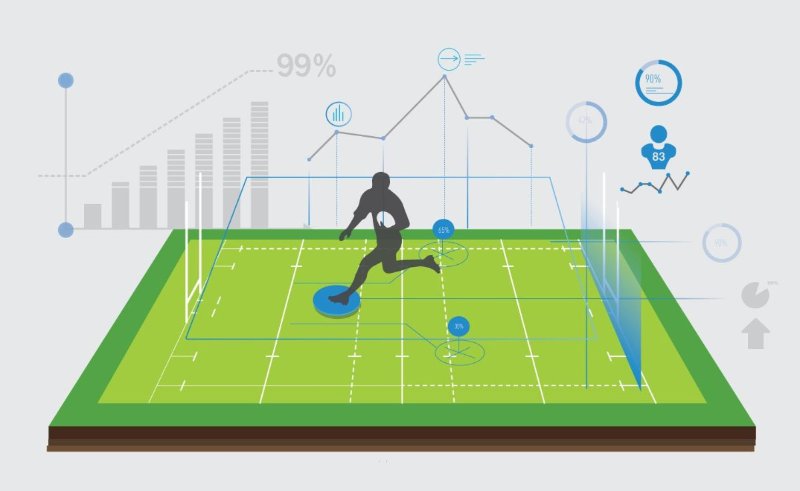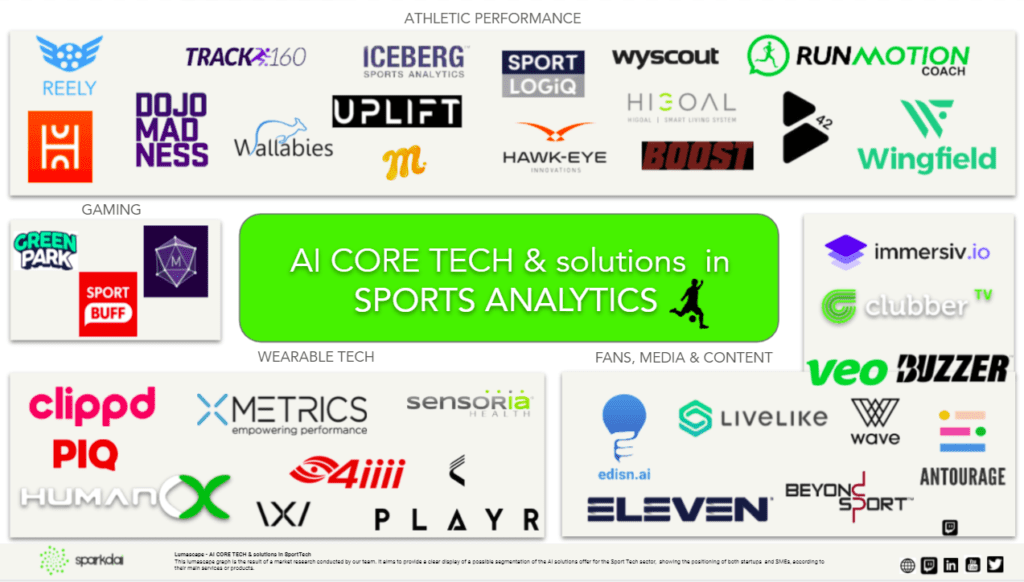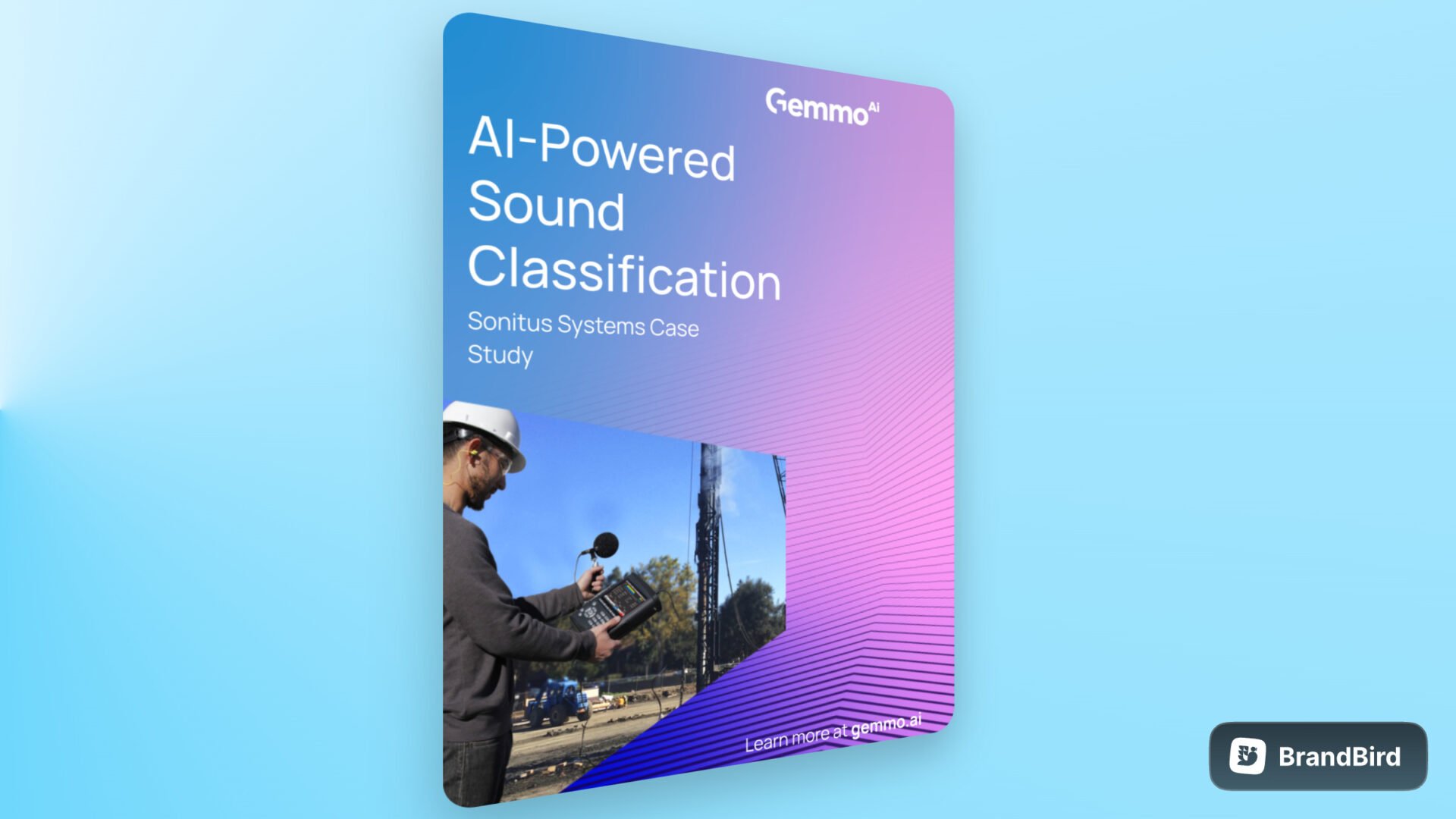Sports Analytics: What is it & How is it helpful
Sports Tech comprises all technological solutions for sports. It ranges from innovation in the field of athlete performance to new ways of fan engagement. Our focus is certainly on a particular technology that Sports Tec...

Sports Tech comprises all technological solutions for sports. It ranges from innovation in the field of athlete performance to new ways of fan engagement.
Our focus is certainly on a particular technology that Sports Tech relies on, Artificial Intelligence. Let’s see how AI is used in sports.

Sports Analytics
If you think you haven’t heard of sports analytics before, you might be wrong. This is especially the case if you’ve seen the beloved cinematic cult classic: Moneyball. The film follows Oakland Athletics general manager, Billy Beane (played by Brad Pitt), as he builds a competitive team relying on sabermetrics, a form of sports analytics, for player evaluation and decision-making.
The success of analytics-based decision-making in baseball was soon noted by other professional sports leagues and today it is widely adopted in other sports as well. There are an estimated 1,012 startups globally in the digital sports sector.
Sports Analytics is a collection of relevant, historical statistics that can inform players, and coaches to facilitate decision-making both during and prior to sporting events.
There are two main areas of sports analytics — on-field and off-field analytics.
- On-field analytics deals with improving the performance of teams and players during gameplay.
- Off-field analytics is applied to the business side of sports. Rather, these analytics are utlised to increase ticket and merchandise sales, improve fan engagement, and offer highlights of matches.
Measure: Activity & Performance
Activity and performance measurement is the most popular category within sports tech. In fact, almost one in two digital sports startups (49%) specialise in Athletic Performance. Athletic performance tools offer solutions to measure performance, prevent injuries and monitor the training and rehabilitation of athletes.
Involvement of Smart Wearable Equipment & Gadget
Through smart wearable systems equipped with sophisticated sensors, it is possible to monitor players’ health and collect data about their performance in real-time. These are the technological solutions that some startups have successfully implemented. These devices record health and fitness data during sports activities and usually send them to a mobile app. They typically track multiple metrics like blood pressure, speed, heart rate, calories burned, and distance. Wearable devices, such as smart shin guards, “intelligent” sweatbands, and smart yoga pants, to name a few, are starting to gain popularity.
Athletic Performance Tracking & Coaching
If it is not possible to make an entire football team wear tracking systems with GPS and other sensors, there is another way to mathematically analyse performance. Using Video Analysis, cameras track the ball and player movements, generating huge volumes of valuable data. Also, it can confirm a player’s objective value when buying players between clubs. Some startups have their own customised cameras among their offerings, which is certainly an advantage in terms of system compatibility and functionality.
Fan Experiences & Social/Media Platforms
This category contains all those useful instruments to connect fans with teams and athletes, and also with other fans. Chatbots, ticketing, and merchandise solutions are based on sentiment analysis and historical data analysis.
Another widely used technology is video analysis and motion tracking systems. which in addition to offering data on the performance of athletes, can enhance the fan experience. Augmented reality can be used to lessen stadium visitors to see live match information and player statistics.
Conclusion
AI and Machine Learning applications are increasingly requested by fans for a satisfying sports experience and by clubs and federations for a more objective and detailed analysis of their players. This shows that there is a profitable market for organisations willing to invest in “connected” stadiums and events.



